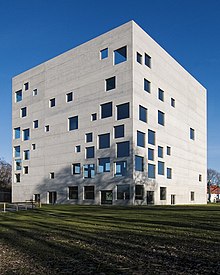
Kurt Jooss was a famous German ballet dancer and choreographer mixing classical ballet with theatre; he is also widely regarded as the founder of Tanztheater. Jooss is noted for establishing several dance companies, including most notably, the Folkwang Tanztheater, in Essen.

The Sibelius Academy is part of the University of the Arts Helsinki and a university-level music school which operates in Helsinki and Kuopio, Finland. It also has an adult education centre in Järvenpää and a training centre in Seinäjoki. The Academy is the only music university in Finland. It is among the biggest European music universities with roughly 1,400 enrolled students.

The Peabody Institute of the Johns Hopkins University is a private music and dance conservatory and preparatory school in Baltimore, Maryland. Founded in 1857 and affiliated with Johns Hopkins in 1977, Peabody is the oldest conservatory in the United States and one of the world's most highly-regarded performing arts schools.
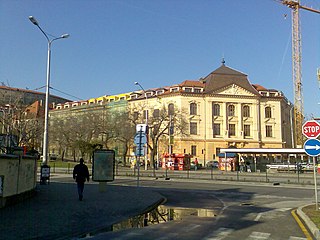
The Academy of Performing Arts in Bratislava is a university founded on June 9, 1949.

Vladimir Djambazov is a Bulgarian composer and horn player.
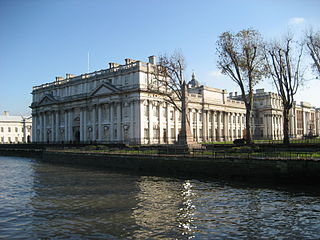
Trinity Laban Conservatoire of Music and Dance is a music and dance conservatoire based in Greenwich, London, England. It was formed in 2005 as a merger of two older institutions – Trinity College of Music and Laban Dance Centre. The conservatoire has 1,250 undergraduate and postgraduate students based at three campuses in Greenwich (Trinity), Deptford and New Cross (Laban).

Susanne Linke is an internationally renowned German dancer and choreographer who is one of the major innovators of German Tanztheater, along with Pina Bausch and Reinhild Hoffmann.

Gisela! oder: Die merk- und denkwürdigen Wege des Glücks is an opera by Hans Werner Henze.
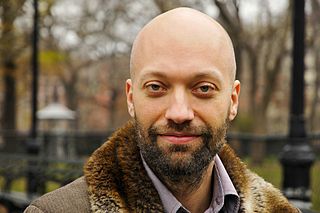
Johannes Wieland is a choreographer, teacher and dancer.

The Brno Conservatory, also Brno Conservatoire, was established in Brno on 25 September 1919 by Moravian composer Leoš Janáček.
The Faculty of Music at the University of Toronto is one of several professional faculties at the University of Toronto. The Faculty of Music is located at the Edward Johnson Building, just south of the Royal Ontario Museum and north of Queen's Park, west of Museum Subway Station. MacMillan Theatre and Walter Hall are located in the Edward Johnson Building. The Faculty of Music South building contains rehearsal rooms and offices, and the Upper Jazz Studio performance space is located at 90 Wellesley Street West. In January 2021, the Faculty announced Dr. Ellie Hisama as the new Dean starting July 1, 2021.
Ralf R. Ollertz is a German composer and, along with Toula Limnaios, an artistic director of Halle Tanzbühne Berlin and cie. toula limnaios, a contemporary dance company they founded together in 1996 in Brussels.
Reinhild Hoffmann is a German choreographer and dancer who is an important innovator in Tanztheater, along with Pina Bausch and Susanne Linke.

Marietta Piekenbrock is a German art curator, dramaturge, author and a cultural manager. Her projects combine theatre, dance, performances and music with cultural history, architecture and everyday life. As an artistic manager of the Cultural Capital of Europe RUHR.2010 and Istanbul.2010, and for the Ruhrtriennale 2012-14, she invited international artists and curators to collaborate with the local cultural participants and players on developing new artistic projects in areas of radical social change. Her programmes of events and initiatives made a strong case for sustainable cultural practice. Her 2012 series of events "No Education" promoted a new discourse on the relationship between art, children and education.
Frederic Alexander "Fritz" Cohen was a German composer best known for writing the music for Kurt Jooss's ballets.
Günter Steinke is a German composer and teacher. He is currently professor of instrumental composition at the Folkwang University of the Arts in Essen, Germany.

Sigurd Leeder was a German dancer, choreographer and dance education theorist. He was born in Hamburg on 14 August 1902, the son of Carl Eduard Gottfried Leder, lithographer, and Martha Auguste Anna Henriette Friedrich. He died in Herisau, Switzerland, on 20 June 1981. He developed a method of teaching expressive dance and contributed, with Albrecht Knust, to the development and dissemination of labanotation, which pioneered the written language of symbols to record and represent modern dance.
Maria Friesenhausen was a German classical soprano who appeared in Europe. She is known for recordings of Baroque music on record and with broadcasters. She was also a professor of voice at the University of Dortmund.
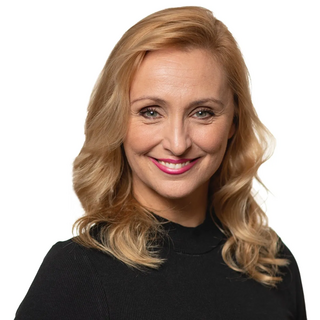
Jacqueline Dunnley-Wendt is a British-German theatre director, choreographer, performer and teacher.



